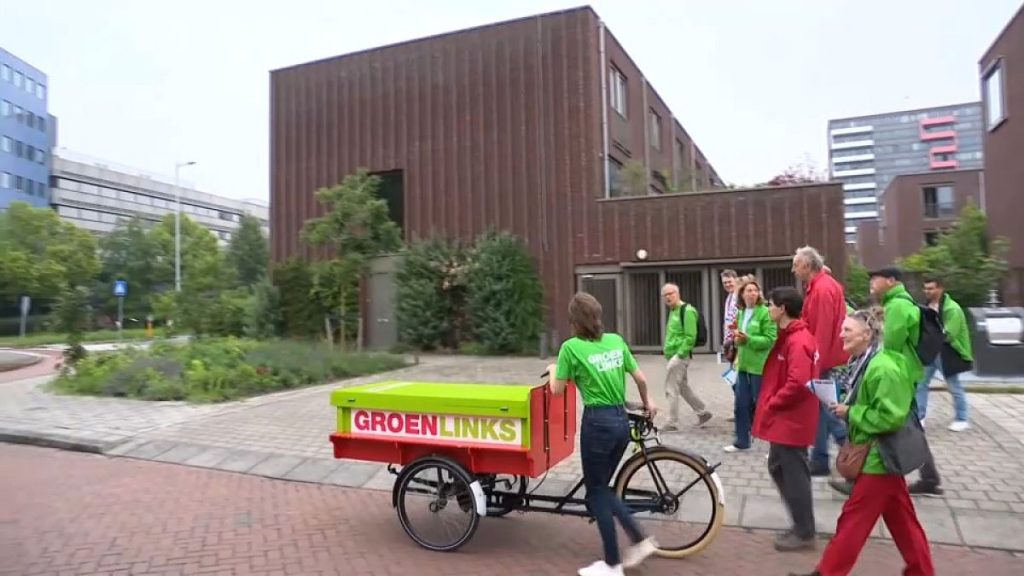As the European Union heads to the polls later this week, Dutch candidates are rallying for the EU elections with concerns over the future of Europe. Bas Eickhout, lead candidate for the GreenLeft–Labour alliance, emphasizes the importance of the upcoming elections in determining whether Europe will remain strong or weaken in areas such as security and climate. Meanwhile, Dirk Goting of the New Social Contract party, a centre-right party launched just nine months ago, expresses optimism about their chances in the polls, noting their significant rise in popularity since April. With 31 Members of the European Parliament to be chosen by Dutch voters this year, the increase in seats is attributed to the United Kingdom’s exit from the EU and population growth in the Netherlands.
For some Dutch voters, the elections are seen as an opportunity to take a stand against far-right leader Geert Wilders, whose party came out on top in the country’s general elections last year. Rob Jetten, leader of the social liberal Democrats 66 party, voices concern over the possibility of Wilders’ party gaining prominence in the European elections and potentially undermining Europe from within. An IPSOS poll commissioned by Euronews further confirms these fears, predicting significant gains for the Dutch far-right Identity and Democracy Party, which is projected to secure 18 of the 31 seats allocated to the Netherlands. In contrast, the Greens and Renew are expected to secure 7 seats each, highlighting the polarized political landscape in the country.
The upcoming EU elections in the Netherlands have sparked intense competition among candidates, with last-minute campaigning efforts underway to sway voters in a highly uncertain political climate. Candidates like Bas Eickhout stress the crucial choice between a strong or weak Europe, with the future of the continent hanging in the balance. The New Social Contract party led by Dirk Goting sees an opportunity to challenge established political forces and gain momentum in the polls, riding on the wave of discontent with mainstream parties. As the populist far-right gains attention and support, other political parties are mobilizing to prevent their dominance and uphold the values of the European Union.
With the future of Europe at stake, Dutch voters are faced with a critical decision in the upcoming EU elections, reflecting broader concerns about the rise of far-right movements and nationalist sentiments across the continent. The possibility of the far-right gaining a significant number of seats in the European Parliament poses a challenge to the traditional political landscape and pushes other parties to reevaluate their strategies. As the Ipsos poll suggests a potential far-right dominance in the Netherlands, the outcome of the elections will have far-reaching implications for the direction of the European Union and its ability to address complex challenges such as security and climate change. Ultimately, the choices made by Dutch voters on 6 June will shape the trajectory of European politics and influence the course of the continent in the years to come.


